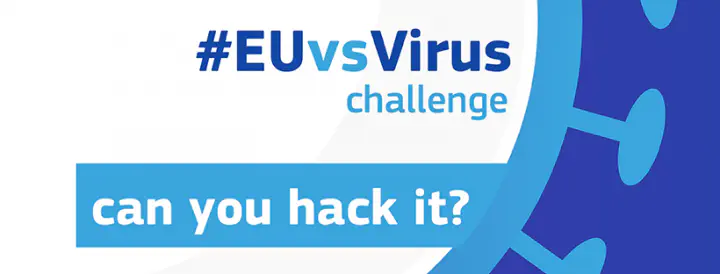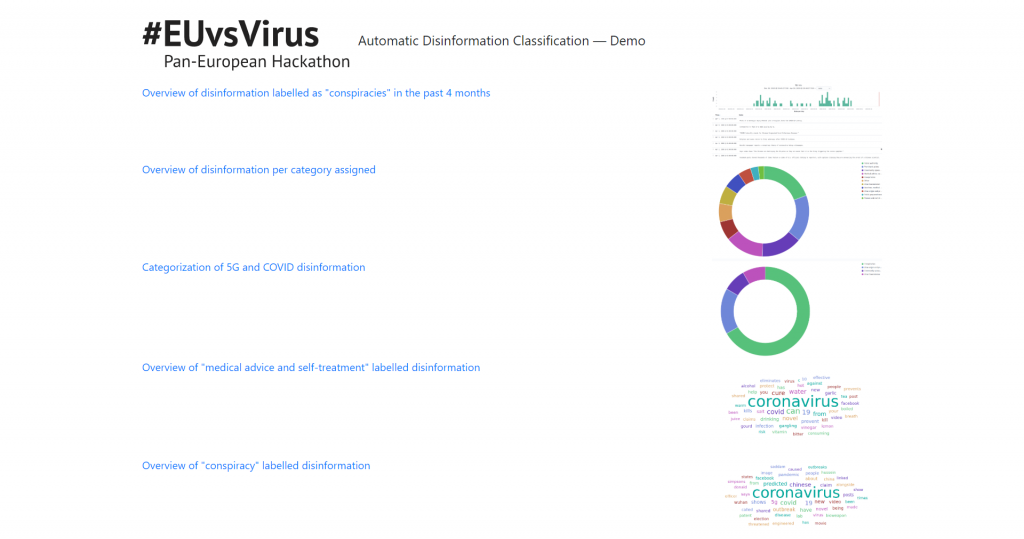MeVer @ EUvsVirus Hackathon
 EUvsVirus Hackathon
EUvsVirus Hackathon
On the 24th of April 2020, a huge coronavirus-related hackathon started, the EUvsVirus Hackathon, organized by the European Commission. Over 20,900 people across the EU and beyond took part, with 2,150 solutions submitted in areas including health and life (898), business continuity (381), remote working and education (270), social and political cohesion (452), digital finance (75) and other challenges (83).
Three teams were formed by the WeVerify consortium and submitted their solutions in the area of social and political cohesion:
-Database of known fakes and verification assistant -Disinformation Annotation and Machine Learning-based Categorisation -COVID-19 Disinformation Detection through cross-social network search and analysis
The Media Verification (MeVer) team participated as a member of the WeVerify project and worked with the University of Sheffield (USFD) and ATC on the ‘Disinformation Annotation and Machine Learning-based Categorisation’ solution. The goal of the solution was to create a high-quality human-annotated dataset and develop open source deep learning AI techniques to automatically categorise COVID-19 (dis)information into 10 categories. The categories which were selected based on an extensive analysis of Reuters Institute are:
-Public authority actions, policy, and communications -Community spread and impact -Medical advice and self-treatments -Claims about prominent actors -Conspiracy theories -Virus transmission -Virus origin and properties -Public preparedness -Vaccines, medical treatments, and tests -Protests and civil disobedience -Other
A UI demo demonstrates the benefits of the solution though easy-to-use visualizations. The interface is password protected. Please contact Kalina Bontcheva – k.bontcheva@sheffield.ac.uk for access details.

Note: This post is an adaptation of the WeVerify Annotation Team@EUvsVirus Hackathon blog post, which was originally prepared for the WeVerify website.
The content of this post is licensed under a Creative Commons Attribution-NonCommercial-ShareAlike 4.0 International License (CC BY-NC-SA 4.0).
